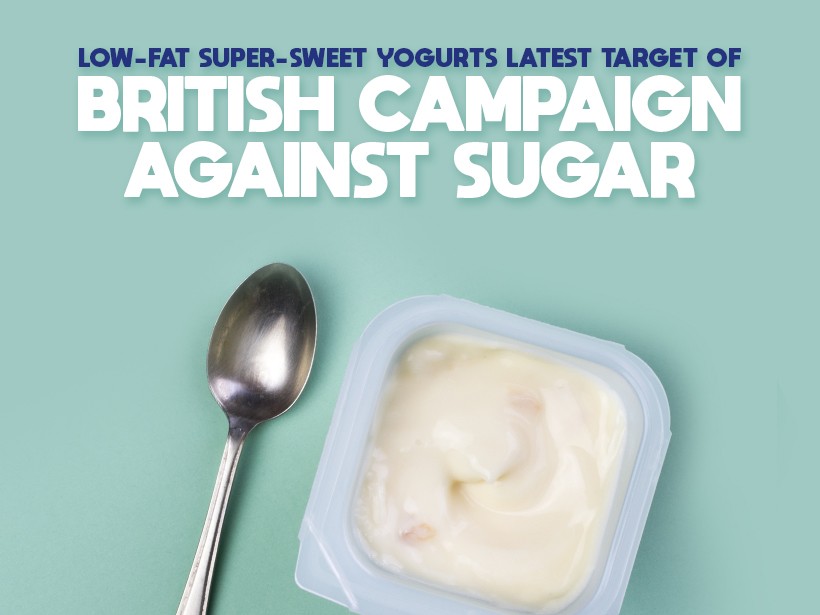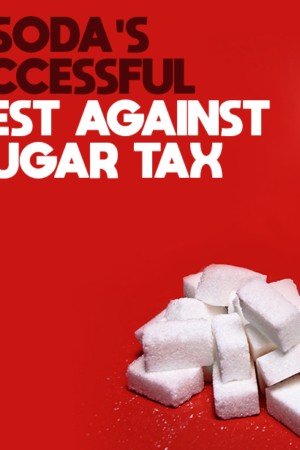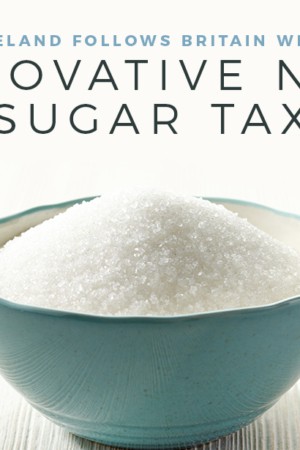From its innovative new tax on sugary drinks to the campaigns led by its public health officials against cereal and other everyday sources of added sugar, Britain has begun to establish itself at the forefront of the fight against excessive sugar consumption. In their latest push, researchers are warning the public about the frightening amounts of sugar in the kind of low-fat flavored yogurts that are often a major component of a kid’s breakfast.
A Day’s Worth of Sugar in Yogurt
Public Health Liverpool did a recent analysis of common name-brand yogurts and found that many of them contain almost 20 grams of sugar in their individual portions. That number approaches the daily recommended amount of sugar for kids, all in one small cup that can easily be polished off in seconds. Councilor Tim Beaumont of Liverpool said in a statement: “Parents are bombarded by marketing messages that yogurts are healthy. Some are, but many are loaded with sugar and families simply don’t realize how much is in them.”1 Indeed, almost a third of 5-year-olds in Liverpool have decayed, missing, or filled teeth, and almost a fourth of all 6-year-olds are obese.
Using its findings as a springboard in their fight, Public Health Liverpool and the activist group Food Active are launching a media campaign across dentists’ offices, hospitals, health and children’s centers to raise awareness among families about the amount of sugar in their diets. What’s more, they’re sending experts to supermarkets and other public buildings to talk to consumers about how to make healthier food choices and avoid added sugar.2
Sugary Yogurt on the Ropes
The flavored yogurt industry has been struggling in recent years with the new low-sugar Greek yogurt craze, kick-started in the U.S. and elsewhere by companies like Chobani. Indeed, as Americans and others begin to recognize—however slowly—the consequences of so much sugar in their food, companies like Yoplait (famous for their ultra-sweet, watery, and heavily-processed yogurt products) have been struggling to rebrand themselves and rebuild the healthy image they long cultivated.3
Efforts like those of Public Health Liverpool have the potential go a long way in swaying consumers, especially when combined with a broader crackdown on sugar consumption. While nothing so comprehensive has yet reared its head in the U.S., the series of local taxes that have spread across the country are a good start. The success of companies like Chobani, which itself prioritizes its reputation for small amounts of added sugar, is likewise a sign of better things to come. 4 In the meantime, Britain is a country that is setting an example and has taken on sugary yogurts as its latest foe.
NUTRITIONAL DISCLAIMER
The content on this website should not be taken as medical advice and you should ALWAYS consult with your doctor before starting any diet or exercise program. We provide nutritional data for our recipes as a courtesy to our readers. We use Total Keto Diet app software to calculate the nutrition and we remove fiber and sugar alcohols, like erythritol, from the total carbohydrate count to get to the net carb count, as they do not affect your blood glucose levels. You should independently calculate nutritional information on your own and not rely on our data. The website or content herein is not intended to cure, prevent, diagnose or treat any disease. This website shall not be liable for adverse reactions or any other outcome resulting from the use of recipes or recommendations on the Website or actions you take as a result. Any action you take is strictly at your own risk.
- For Keto, the Everyday Research Says it All - March 6, 2019
- Huge Harvard Study Backs Up the Wide-Ranging Benefits of a Low-Carb Diet - February 25, 2019
- Experts Convene for Keto Conference - July 30, 2018




